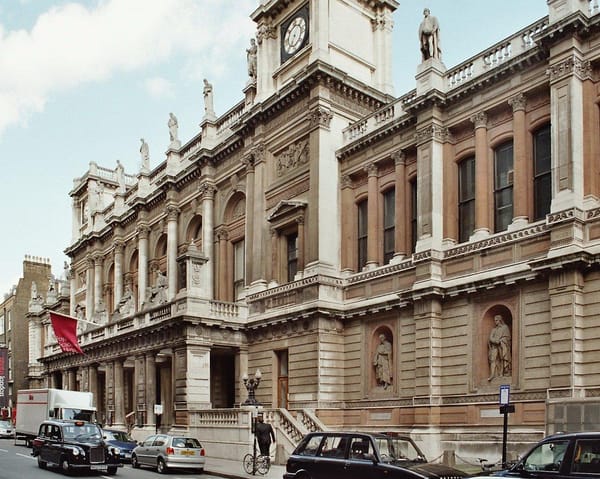Igniting the tinderbox
Will Sunak pick up where Truss left off and move the UK embassy in Israel from Tel Aviv to Jerusalem?

Amidst the recent convulsions within the ruling Conservative party, which have wreaked havoc on the UK’s financial system and precipitated the rapid demise of Liz Truss’ tenure as prime minister, there has been another, less discussed casualty: Truss’ plan to move the UK’s embassy in Israel from Tel Aviv to Jerusalem. Though it was Truss who casually threw out the suggestion in a conversation with her counterpart Yair Lapid, the prospect of relocating the embassy is certain to outlast her, given the enthusiasm for such a move amongst Conservatives – including their newly anointed leader, Rishi Sunak.
Sunak has positioned himself as a strong supporter of Israel, which he recently described as a “shining beacon of hope”. In this regard, he appears to share Truss’ Manichean view of a world starkly divided between authoritarian dictatorships and freedom-loving democracies, centred on a close partnership between Israel and the UK. Like his predecessor, he has affirmed Jerusalem as “indisputably the historic capital” of Israel and claimed a “very strong case” for moving the UK embassy.
Pro-Israel PMs are nothing new. Johnson took several significant steps in this regard: criminalising membership in, even contact with, the Palestinian Islamist movement Hamas; launching talks with Israel on a free trade deal; and introducing legislation to prohibit councils from divesting from pension funds linked to Israel and its illegal West Bank settlements.
As foreign secretary, Truss initiated an internal review with the goal of pushing the UK even closer to Israel and “doing less”, in the words of one insider, on the Israeli-Palestinian peace process – a policy that is likely to continue under Sunak. But Truss was not in office long enough to see through her pledge of moving the UK’s embassy, which she had touted during her leadership campaign and again as prime minister when meeting with her Israeli counterpart on the sidelines of the UN general assembly in September. She has, though, left her successor with a policy review initiated by Number 10 into the matter.
Should Sunak do what Truss could not, he would be breaking dangerous new ground by contravening long-held UK positions and international law.
Fuelling instability
In 1947, the UK voted in favour of United Nations general assembly resolution 181, a partition plan which set aside Jerusalem as a “corpus separatum” [separated body] under the sovereignty of neither the Jewish nor Palestinian state. This was soon overtaken by events on the ground when Israel captured the western half of the city during the 1948 Arab-Israeli war. The new state then occupied eastern Jerusalem from Jordan during the war of 1967, and subsequently annexed it – applying its own laws to the area without granting citizenship to its Palestinian residents (they were given “permanent residency” status and can apply for citizenship, though Israel often refuses such requests; East Jerusalemites can also have their Israeli residency permit revoked on a variety of pretexts, including “disloyalty” to Israel).
Neither the UK nor the UN has recognised any of these conquests. And despite Donald Trump’s presidential proclamation affirming Jerusalem as Israel’s capital in 2018, there remains a near-total international consensus against recognising Israeli (or Palestinian) sovereignty over any part of the city pending a negotiated outcome to the conflict.
Far from being merely bureaucratic as claimed, the British government would be taking a stance on one of the most sensitive and contentious issues in Israel and Palestine, implying recognition of Israeli sovereignty in Jerusalem in contravention of these long-standing international positions. This will not only call into question the UK’s commitment to a rules-based order – at a time when it is already under unprecedented strain due to Russia’s invasion of Ukraine – but also negatively impact the elusive search for peace between Israelis and Palestinians.
Since Oslo, successive UK governments have committed themselves to supporting a two-state solution guaranteeing the security of Israel alongside a Palestinian state, as remains international consensus. In such circumstances, Jerusalem could become either a shared city or be divided between a Palestinian east and an Israeli west. But by moving its embassy to Jerusalem, the UK – a permanent member of the UN security council – will be sending a dangerous signal that will be interpreted by Israelis and Palestinians alike as pre-empting the outcome of negotiations, entrenching maximalist Israeli positions claiming all of Jerusalem as Israel’s undivided capital.
Without a reciprocal move recognising Palestinian claims to East Jerusalem, this will also weaken the moderate Palestinian leadership of president Mahmoud Abbas who has long supported a negotiated solution to resolve Jerusalem’s future. At a time of rising Palestinian public support for armed struggle and the unprecedented ascent of the parliamentary far right in Israel, the UK risks fuelling more instability on the ground to the detriment of Israelis and Palestinians alike.
Instrumentalising Jews
Although the UK would find itself outside of the international consensus, it would not be the first country to move its embassy to Jerusalem. Supporters of the move eagerly point out that the UK would be following the example set by Honduras, Guatemala and the Trump administration. But the UK’s trade and security interests are much more interwoven with the Middle East than those of Latin American countries, while it lacks the US’s diplomatic power to secure international acceptance of its decision.
As Arab allies have warned, a change of policy could negatively impact the UK’s regional standing and bilateral relations, including its search for post-Brexit trade deals. Alongside this, British diplomats will face a boycott by the Palestinian Authority due to the UK’s perceived undermining of Palestinian claims to the holy city. As a consequence, the British government may struggle to shape local and regional events in line with its core interests, and runs the risk of sparking violent protests against those interests in Muslim-majority countries around the world.
While the downsides are clear, the benefits are less so. Ties with Israel are already at their peak, and it is unlikely that the UK government could derive any additional benefits from its change of tack.
More insidiously, the Conservative party has once again been instrumentalising Jews for its own political agenda. In doing so, it may inadvertently tap into antisemitic tropes that hold the British Jewish community responsible for UK foreign policy or Israel’s actions. As unjustified as such views are, any UK endorsement of Israeli claims to Jerusalem is likely to result in intercommunal tensions given attitudes on the issue amongst the British Muslim community.
Having come into office to fix the mistakes committed by Liz Truss and rescue the UK from a self-inflicted financial crisis, Rishi Sunak should not risk his own foreign policy crisis by reprising her ill-advised efforts to relocate the British embassy to Jerusalem. Amidst rising domestic hardship and global tensions, the UK can ill afford the unnecessary costs this would have on its trade and security interests. Conservative MPs have repeatedly pledged to govern in the “national interest”. Cancelling Truss’s review into the move would be a good start.▼
Hugh Lovatt is a senior policy fellow with the Middle East and North Africa programme at the European Council on Foreign Relations, based in London.




